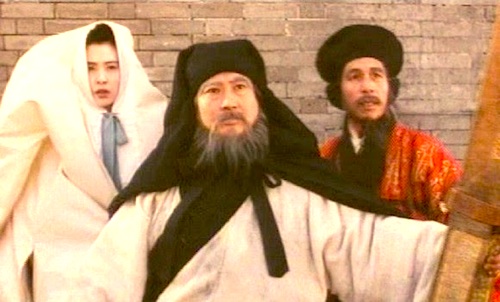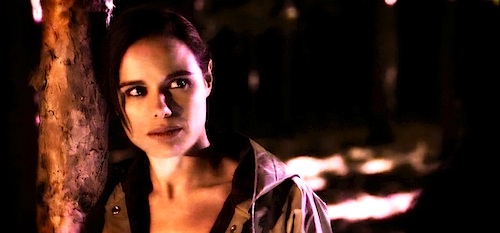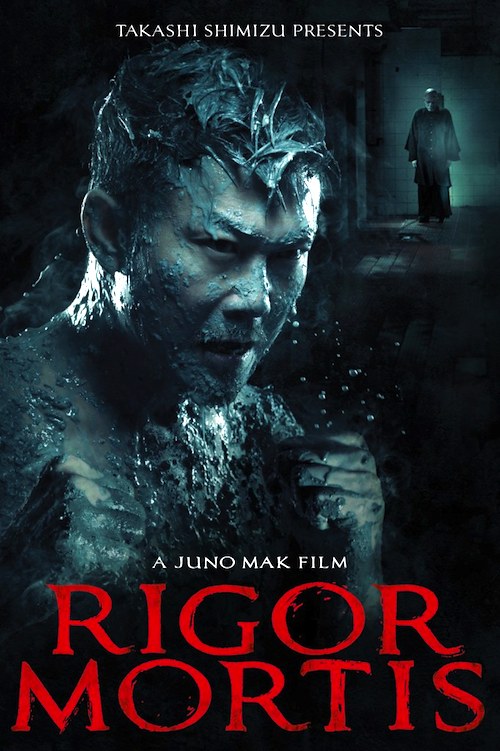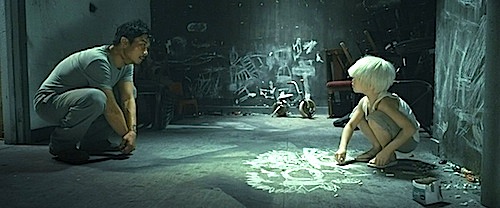By Joe Bendel. You have to feel for the publishers of Hiroshi Sakurazaka’s light novel and manga, All You Need is Kill. They had a recognizable property with one of the coolest titles ever, but the studio changed the title of their live action adaptation to something sounding like a soap opera or an Edgar Cayce tract—and then they wonder why their tracking is soft. It is a shame, because the eternally recurring battle against alien invaders is rather snappily executed in Doug Liman’s Edge of Tomorrow, which opened Friday nationwide.
The so-called “Mimics” (because they are so blasted adaptable in battle) have overrun continental Europe, but somehow mankind held them off at Verdun. Victory was partly attributed to the development of their Iron Man-like exo-war “jackets” and partly to the leadership of warrior-extraordinaire Rita Vrataski, the “Angel of Verdun” (or “Full Metal Bitch” in the source novel). Embolden by humanity’s first battlefield success, General Brigham is poised to launch a D-Day-like counter-invasion of France. It will not go well, as soon to be ex-Major William Cage (formerly green recruit Keiji Kiriya) experiences over and over again.
Deservedly busted down to private for his incredibly stupid comments to Gen. Brigham, the military PR officer is now amongst the first wave of ground troops set to hit the beaches. Unfortunately, the Mimics know they are coming. Cage is indeed killed in rather short order, as are most of his new comrades, but not before he takes out an unusually large “Alpha” Mimic. Eventually, he learns he has been contaminated by their time altering power through its blood. Each time he dies, his incredibly un-fun day starts afresh. It has to be a clean death though. A transfusion will wash out his Mimic connection, whereas incapacitation would be the worst possible scenario.
Even though it is easy to recognize plenty of familiar military science fiction elements, Liman cobbles them together quite sure-handedly, adding the Groundhog Day twist. The action sequences are intense and brutally honest to the realities of any war. Frankly, there are a handful of moments of 3D shock and awe, but it is mostly unnecessary (as you probably already guessed). The battery of screenwriters also convey as decent sense of the soldier’s perspective and attitude. Yet, the film is relatively circumspect drawing D-Day parallels, notwithstanding the June 6th release date.

Younger readers might be interested to know Tom Cruise was once one of the biggest box office stars in the world, before he started handing out flowers at the airport, or whatever. This is the sort of role that used to be his bread-and-butter in the 1980s: the callow hotshot forced to mature thanks to the help of a more experienced woman. It might be a familiar arc for him, but he does not slack on the energy level. Yet, it is Emily Blunt who really delivers the grit and action cred as Vrataski. Science fiction fans will also enjoy watching Bill Paxton play with and against his Aliens persona as the hard-charging Master Sergeant Farrell Bartolome.
There are a handful of moments in Edge that will make the hair on the back of your neck stand on end. Unfortunately, the ending feels like a tacked on exercise in Hollywood gooeyness, almost undoing the in-your-face integrity of everything that came before. Nevertheless, there is more than enough amped-up genre action and time paradox-tripping to satisfy high concept, big budget science fiction fans. Recommended accordingly, Edge of Tomorrow opened Friday across the country, including the AMC Empire in New York.
LFM GRADE: B
Posted on June 12th, 2014 at 12:54pm.







